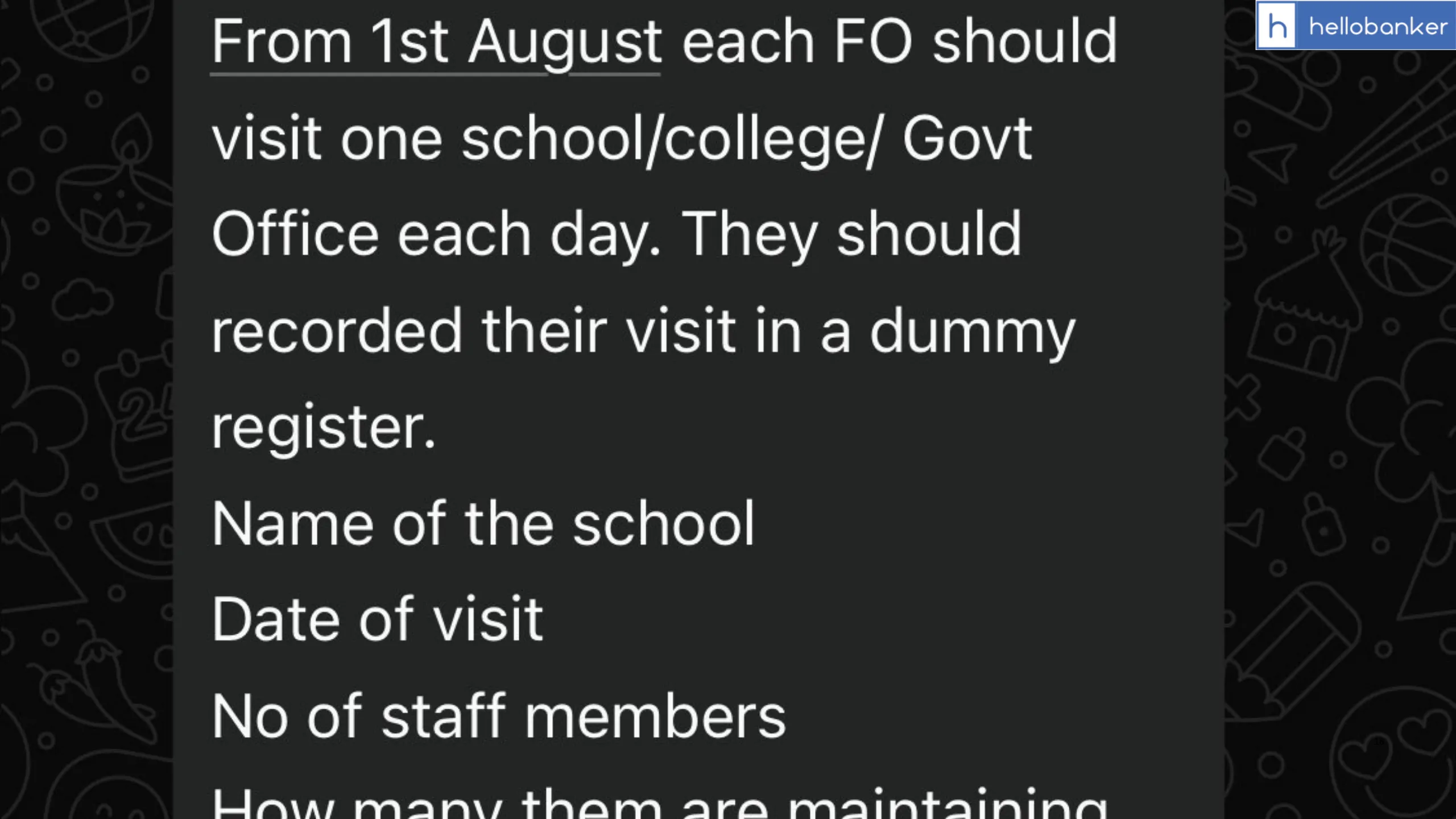A recent communication from SBI has directed all Field Officers (FOs) to begin visiting schools, colleges, and government offices from 1st August onward, with the aim of collecting detailed data about staff members and banking relationships. As per users on social media, this order has been issued by SBI RBO Bargarh, Odisha. While the intention may be to increase outreach and business generation, the instructions raise several valid and serious concerns about practicality, protocol, and ethics. Users are criticizing Bank on social media platforms for such order.
1. Protocol and Access Restrictions
Government institutions, schools, and colleges operate under well-defined administrative protocols. Entry into such institutions, especially for data collection purposes, requires prior permission from the competent authority or head of the institution. Field Officers, who are junior-level functionaries, do not possess the authority to bypass these protocols. Walking in unannounced or without proper authorization is likely to be met with resistance or outright denial of entry.
2. Confidentiality and Data Privacy
The instructions ask Field Officers to collect sensitive personal and financial information such as:
- Number of staff members
- Whether they maintain salary accounts with SBI
- Details of personal or home loans availed
- Mobile numbers of individual staff
This not only violates basic norms of data privacy but may also amount to breach of confidentiality under banking and institutional ethics. Government staff are under no obligation to disclose such information to bank officials, especially when the approach is informal and undocumented.
3. Feasibility and Practical Limitations
Expecting one FO to visit a school or office every day and collect a detailed report is unrealistic and impractical. Most institutions are already short-staffed and busy with their primary duties. They cannot and should not be burdened with the responsibility of responding to informal data-gathering exercises. Furthermore, such repeated visits by bank staff may even be perceived as harassment or unprofessional conduct.
4. Need for Structured and Official Engagement
Instead of sending junior officers with handwritten registers, the correct protocol would be:
- The Regional Office (RO) or Circle Office should officially correspond with the heads of these institutions.
- Formal meetings or awareness camps can be arranged after obtaining prior approval.
- Senior officials should represent the bank in these interactions, accompanied by marketing or FO staff only after permission has been granted.
This ensures that the bank’s image remains professional and that business outreach is conducted in a dignified and protocol-compliant manner.
Users are saying:
- The current instruction should be withdrawn or modified.
- Business development activities involving public or government institutions should be handled centrally by RO/CO-level officials.
- Any field-level follow-up should happen after formal permission and scheduling, ensuring respect for institutional protocols and individual privacy.
While the pressure to meet business targets is understandable, it must be balanced with the importance of maintaining professional conduct, legal compliance, and public trust. Frontline staff should not be put in positions that expose them to embarrassment, refusal, or conflict. Instead, the bank should empower its field teams through structured planning, top-down coordination, and proper authorization channels.
